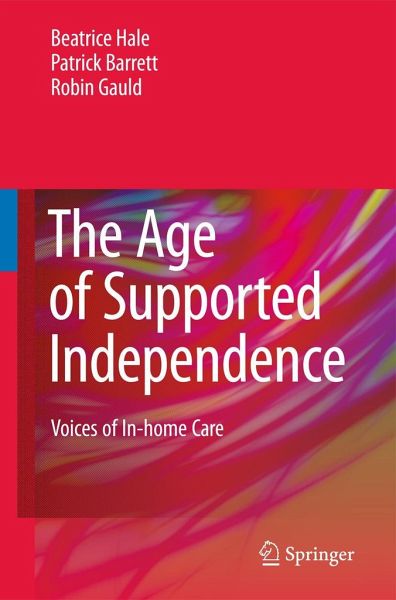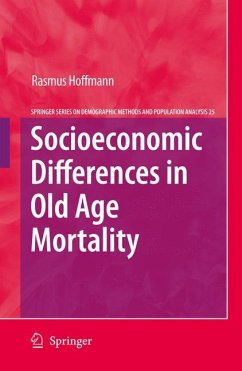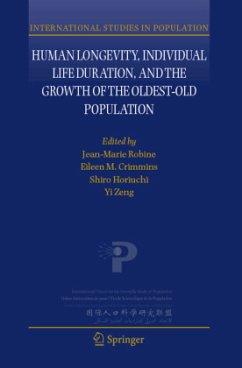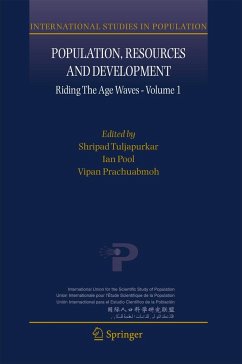
The Age of Supported Independence
Voices of In-Home Care
Versandkostenfrei!
Versandfertig in 6-10 Tagen
76,99 €
inkl. MwSt.
Weitere Ausgaben:

PAYBACK Punkte
38 °P sammeln!
This book investigates the experiences of older people who remain at home with care. It examines the transition points for the important life changes faced by family members who take on a greater care-giving role.The book draws on demographic analyses and qualitative fieldwork to explore the shift from independence to increasing dependence, and suggests that this transition constitutes movement into a new stage of life, that of an Age of Supported Independence. Applying the anthropological concept of rites of passage in their analysis, the authors focus on the changes in everyday living within...
This book investigates the experiences of older people who remain at home with care. It examines the transition points for the important life changes faced by family members who take on a greater care-giving role.
The book draws on demographic analyses and qualitative fieldwork to explore the shift from independence to increasing dependence, and suggests that this transition constitutes movement into a new stage of life, that of an Age of Supported Independence. Applying the anthropological concept of rites of passage in their analysis, the authors focus on the changes in everyday living within the spatial environment of the home, the temporal organization of daily life, and the reshaping of relationships. They suggest that many older people - as well as the family members who become carers - remain in a state of 'liminality': unable to make sense of their new situation and experience and, despite assumptions that ageing-in-place sustains social connectedness, excluded from their communities.
The book draws on demographic analyses and qualitative fieldwork to explore the shift from independence to increasing dependence, and suggests that this transition constitutes movement into a new stage of life, that of an Age of Supported Independence. Applying the anthropological concept of rites of passage in their analysis, the authors focus on the changes in everyday living within the spatial environment of the home, the temporal organization of daily life, and the reshaping of relationships. They suggest that many older people - as well as the family members who become carers - remain in a state of 'liminality': unable to make sense of their new situation and experience and, despite assumptions that ageing-in-place sustains social connectedness, excluded from their communities.













